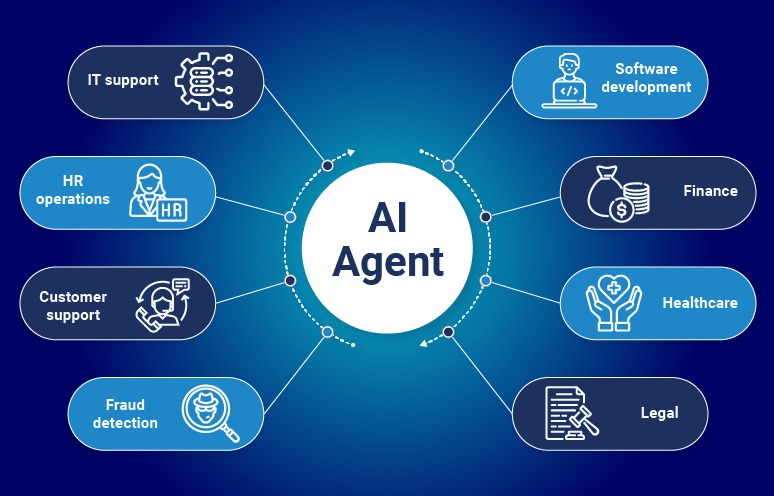Retailers worldwide are encountering rapid shifts in both the fundamental business model and day-to-day operations. When you integrate artificial intelligence (AI) and computer vision in retail operations – it’s like giving your business a whole new way to run and connect with your customers.
At the core of AI’s impact in retail are technologies like machine learning and predictive analytics. They help you use big sets of data to make smart decisions. AI also works with the Internet of Things (IoT), turning data from sensors into helpful insights. This helps make your store run better and gives your customers even better experiences. It’s like AI applications are helping to transform retail operations.
“Did you know 71% of online shoppers say personalized recommendations influence their purchase decisions?” – McKinsey & Company
Many brick-and-mortar stores struggle to compete with the online giants when it comes to e-commerce visibility. Imagine a scenario where a customer walks into your store, browses a specific type of shoe, but doesn’t end up buying.
With AI and computer vision you can bridge the gap between your physical and online store. With the help of computer vision, you can track the customer’s behavior, and AI can use this data to recommend similar shoes on your website later. This personalized touch can significantly improve conversion rates and customer satisfaction.
According to Fortune Business Insights, AI services in retail are expected to jump from $5 billion to over $31 billion by 2028. This big number shows how much AI is going to impact your industry.
In this blog, we will delve into the overall outcome of AI in retail business. It addresses the challenges faced without AI and provides a step-by-step guide to implementation. It also explores various AI use cases in retail, emphasizing personalized experiences. And how Softweb Solutions, as a trusted AI partner can offer guidance on seamless AI integration and showcase the potential of AI applications in retail for innovation and growth.
What are the challenges faced by retailers without AI
- Inability to personalize customer experiences
- Difficulty in optimizing inventory management
- Challenges in predicting customer demand
- Inability to optimize pricing strategies
- Difficulty in detecting and preventing fraud
- Inability to automate tasks
- Retail margin pressure
- Inability to adapt to the changing retail landscape
- Difficulty in understanding and responding to customer needs
- Challenges in optimizing operations and reducing costs
- Inability to compete effectively in the digital world
- Failure to innovate and stay ahead of the curve
As you can see, retailers without AI face several challenges that can make it difficult to compete in today’s market. AI applications in retail can help retailers overcome these challenges and gain a competitive edge.
How to maximize profits through artificial intelligence in retail
The implementation of AI in retail has revolutionized various aspects of the industry, setting successful businesses apart from their competitors. Some AI use cases in retail that are making a significant impact include:
Inventory optimization: AI-driven demand forecasting
- Utilize machine learning algorithms (e.g., TensorFlow, PyTorch) for proactive marketing and business strategies tailored to your specific needs.
- Extract insights from the marketplace, consumer behavior, and competitor data.
- Utilize these insights to optimize supply chain planning, pricing, and promotional strategies according to your business goals.
Personalized homepage experiences: Mobile and digital portals recognition
- Experience AI-driven recognition with facial recognition technology (e.g., Amazon Rekognition) for personalized homepage experiences.
- Tailor e-retail journeys based on your customers’ context, purchases, and behavior, evolving their user experience with hyper-relevant displays.
- Eliminate friction between digital and physical channels for a seamless shopping experience.
Proactive customer outreach: Advanced CRM and marketing systems
- Leverage AI-powered systems using CRM platforms like Salesforce and marketing automation tools.
- Learn behaviors and preferences for proactive outreach, developing detailed shopper profiles for your personalized outbound marketing. This includes tailored recommendations, rewards, or content crafted just for you.
Interactive customer support: AI-powered chat programs
- Improve customer service and engagement through AI-driven chat and voice inputs.
- Chatbots utilize AI and machine learning using platforms like the Microsoft Bot Framework to answer questions and collect data, enhancing your understanding of your customers’ needs.
Visual merchandising excellence: Algorithmic engines for real-world to digital translation
- Translate real-world customer browsing behavior into digital opportunities through algorithms for targeted advertising or personalized product recommendations.
- Identify products in images and videos implementing image recognition technologies.
- Create seamless product searches, allowing customers to easily find the products they are looking for online.
Conversational assistance: AI-supported conversational assistants
- Utilize natural language processing (NLP) using tools like MS Cognitive Services for conversational assistance.
- Guide you through questions, FAQs, and troubleshooting, seamlessly redirecting you to human experts, optimizing staffing.
Personalization and customer insights: Intelligent retail spaces
- Leverage computer vision to recognize and adapt in-store displays.
- Personalize shopping experiences using customer profiles, loyalty accounts, and promotion.
- Use AI applications and advanced algorithms to create a frictionless shopping and checkout retail experience.
Emotional intelligence: AI interfaces for emotional recognition
- Recognize facial recognition, biometric, and audio cues for emotional intelligence.
- Identify emotions and deliver appropriate product recommendations, ensuring a personalized retail experience that resonates with your customers.
IoT-enabled customer interaction: Utilization of IoT for consumer insights
- Gain insights into your consumer behavior preferences through IoT devices and platforms.
- Increase engagement, especially in the retail setting, based on your preferences and interactions.
Operational efficiency: AI-supported logistics
- Optimize inventory, staffing, and distribution in real-time using AI platforms.
- Ensure efficient supply and fulfillment chains that meet your expectations for high-quality, immediate access, and support.
Responsive research and development: Deep learning algorithms for feedback analysis
- Analyze your customer feedback and sentiment through deep learning algorithms using frameworks like Keras or PyTorch.
- Support next-gen product and service designs, aiming to better satisfy your preferences and marketplace needs.
Demand forecasting: AI business intelligence tools
- Mine insights to forecast industry shifts using BI tools like Tableau or Power BI.
- Lead to proactive changes in your marketing and business strategies based on your understanding of the market.
Tailored customer selection: AI for personalized experiences
- Use AI solutions to provide unique, personalized experiences to your customers.
- Brands implementing advanced digital technologies often see revenue increases, showcasing the impact of tailored experiences on their bottom line.
Enhance e-commerce visibility with computer vision and AI
Let’s delve deeper into how these technologies can transform your eCommerce visibility:
- Personalized product recommendations: You can track customer behavior in your store, like what they browse and pick up with computer vision. AI then leverages this data to suggest similar or complementary products on your website, creating a more engaging and personalized shopping experience.
- Targeted advertising: Analyze demographics in your physical store and AI can use this data to tailor online advertising campaigns, reaching the right customers with the right products.
- Increased search capabilities: Computer vision services can be used to implement image recognition on your website. Customers can upload photos of products they like, and your website can use AI to suggest similar items in your inventory, making product discovery a breeze.
- Improved inventory management: By analyzing customer behavior and purchase history, AI can predict future demand and optimize inventory levels. This reduces the risk of stockouts and ensures you have the right products in stock to meet customer needs.
AI applications in retail: A new way forward
Delve into the world of AI with Softweb Solutions as your trusted partner. Our AI experts will guide you through a seamless integration process for your AI use cases in retail. Leverage the transformative power of AI to personalize customer experiences, optimize operations, and drive growth. Now is the opportune moment to invest in AI. Talk to our AI consultants to know how your retail operations can become customer-centric and what ground-breaking AI solutions you need.



